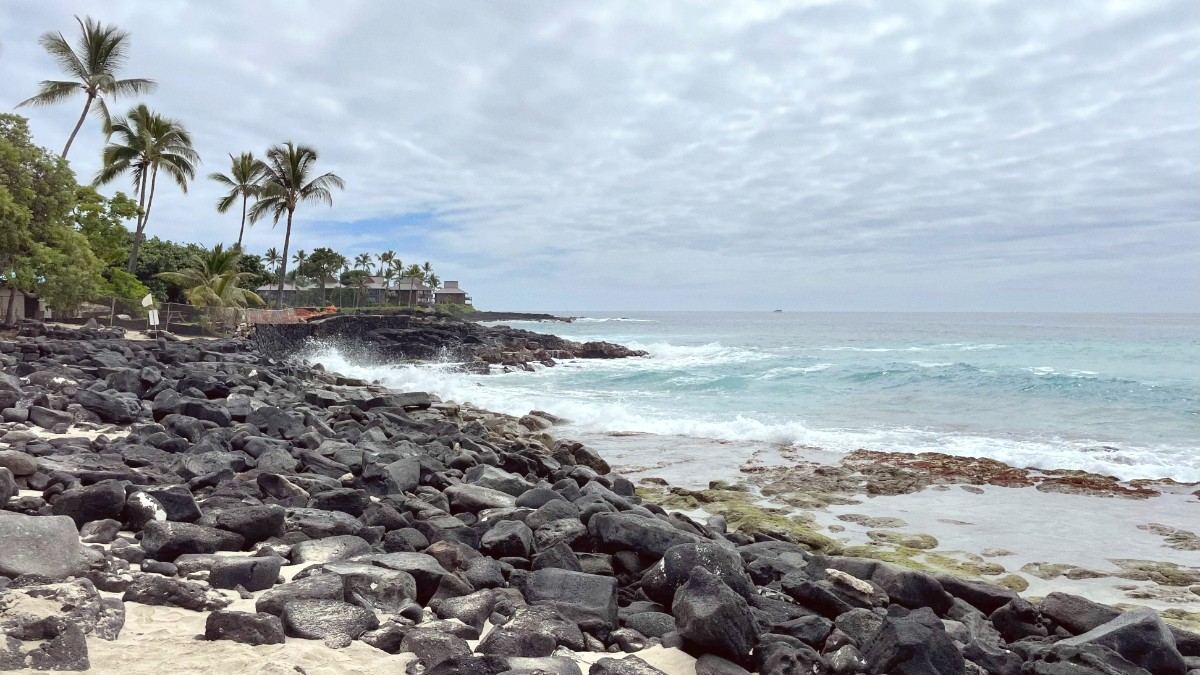
Hawaii, USA
National Parks (Puʻuhonua o Hōnaunau, Kaloko-Honokōhau, Hawaii Volcanoes) are established protected areas. Support their conservation efforts by following rules and staying on marked trails.
Hawaii faces challenges with waste due to its remote location. Recycling bins are available at resorts, public facilities, and grocery stores. Hawaii has a statewide ban on single-use plastic bags. Bring Reusable shopping bags.
Freshwater is a precious island resource. Take shorter showers, reuse towels at your accommodation, and report any leaks you observe. Every drop counts.
Your actions contribute to the preservation of Hawaii's natural beauty.
Consider purchasing carbon offsets for your flights. Some airlines offer this option directly during booking. This approach helps mitigate the environmental impact of your air travel. Terrapass is a provider of carbon offsets.
Look for accommodations with green certifications or those that promote sustainable practices, like linen reuse programs, solar power, water-saving fixtures, and local sourcing. Choose tour operators that emphasize responsible tourism, small group sizes, wildlife protection, and educational components about the local environment. Explore Ecobnb for eco-friendly stays.
For your outdoor adventures, consider gear from companies committed to sustainability. High-quality, durable gear that minimizes environmental impact supports long-term ecological goals.
Choosing ethical tour operators means supporting businesses that prioritize local communities, conservation, and fair practices. These tours often provide a , more meaningful travel experience.
A conservation organization with a store, where purchases contribute to saving rainforests and their inhabitants.
Visit The Rainforest SiteYour choices in accommodations, tours, and purchases make a difference in supporting conservation efforts in Hawaii and beyond.
Choose accommodations and tours with proven sustainable practices. Show respect for protected areas and adhere to conservation efforts.
Show cultural awareness during your Hawaii visit.
Support local cultural organizations and events. Entrance fees often support these initiatives.
"Malama Aina" (Care for the Land): This core Hawaiian value expresses deep reverence. Treat the land and ocean with profound respect. Do not litter, vandalize, or remove natural elements like sand, rocks, or plants. Removing lava rocks is considered bad luck and is illegal.
Embrace the "Aloha Spirit" with patience, friendliness, and respect in your interactions with locals. This embodies the true spirit of aloha. Avoid entitled behavior; recognize that tourism shapes local life, so be mindful, patient, and courteous in all interactions.
Patience, friendliness, and respect characterize this core Hawaiian value.
Be mindful that tourism shapes local life; courtesy and patience go a long way.
Do not climb on or disturb heiau (temples) or ancient burial grounds. Observe designated pathways.
Embrace 'Malama Aina' (care for the land) and 'Aloha Spirit' (patience, friendliness, respect). These values define local life.
Your travel choices directly impact local communities and the economy.
Seek out small, locally-owned businesses, tours, and restaurants. This directs your spending back into the community. Participation in volunteer opportunities for local communities or the environment offers a meaningful way to contribute beyond monetary spending.
Purchase locally made products directly from artisans or small shops. Look for "Made in Hawaii" labels for authenticity and local craftsmanship support. Support certified Kona coffee farms with fair labor practices.
Dine at local restaurants rather than large chain establishments. Shop at local markets for produce and crafts. Book tours with local operators instead of large, impersonal companies. This keeps money within the Big Island's economy.
Be aware of "greenwashing" (where a company claims environmental friendliness but is not) or "cultural appropriation." Choose businesses that genuinely support local communities and environmental initiatives. Avoid any activities that exploit animals, like roadside animal attractions not focused on rehabilitation or conservation.
If you wish to donate, choose reputable local non-profits focused on environmental conservation, cultural preservation, or community development rather than giving to individuals on the street. Research organizations like the Hawaii Community Foundation or local environmental trusts.
Consider G Adventures for tours aligned with ethical and sustainable principles.
Shop at The Rainforest Site, where purchases contribute to conservation.
Direct donations to local, reputable non-profits for environmental or cultural causes.
Choose businesses with genuine local and environmental support. Avoid activities that exploit animals or greenwashing claims.
Ask local residents for their recommendations on restaurants, shops, and activities. This supports local businesses and presents unique experiences.